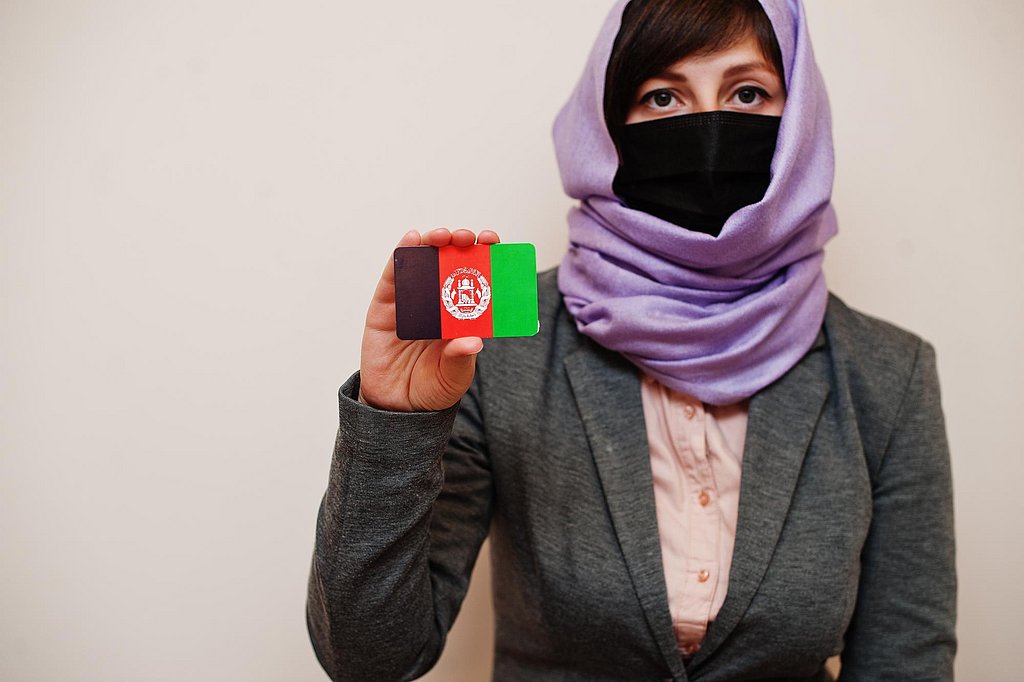In summer 2021, the media struck the world with awful pictures of Afghan refugees fleeing their homes in search of a better life. This was the result of the ruthless takeover by the Taliban which now controls Afghanistan’s capital Kabul. Altogether this has created a massive crisis not only for war-torn Afghanistan, but also for neighboring regions.
I was awestruck by the exacerbated crisis. The fact that my personal Afghan contacts had been speaking out for years against the atrocities committed by the Taliban against their families, made me even more concerned. Studying in the Master’s degree program, Intercultural Conflict Management (ICM) at Alice Salomon Hochschule Berlin – an international environment – solidified my belief that refugees in Berlin, especially those from Afghanistan, are in dire need of support.
I had an epiphany that I should personally pursue the goal of increasing safety, particularly for Afghan refugees in Berlin. Concentrating on specific parts of the research and analysis for the ICM program, I uncovered the fact that the media in Berlin introduced misleading headlines when reporting violence against migrants and refugees.
After carefully looking at the crime rates in Berlin and the underlying reasons, I discovered that it was predominantly a lack of employment opportunities which acted as the prime motive for many crimes. Even though crime rates have been declining for years, addressing safety and security concerns will only enhance Germany’s national reputation.
Collaborating with professors and students at ASH Berlin, helped build a new foundation for a future Information Center that would act as a hub, connecting professionals from NGOs and the relevant ministries. This Center would provide experts from a broad range of institutions with a large assortment of verified reports detailing objective analyses.
Within the work of human intelligence (HUMINT) – the gathering of information from sources and contacts – further analyses of the data would present experts with clear and realistic assessments, forecasts, and recommendations, and show the realities of the refugee experience.
With a clear goal in mind, the difficult yet rewarding search for contacts began. The interviews with the respective sources gave insights into how these refugees survived their journey to Berlin, and what knowledge and skills they are currently using, to make their prolonged stay sustainable. In order to respect the privacy of our contacts, pictures, names, and sensitive information are protected. It is my hope to demonstrate that trust-building is essential in the work of human intelligence with refugees. In the case of those fleeing the Taliban regime, there is a well-founded fear of persecution.
"Regretfully, many refugees find that they are still not welcome, even in an incredibly diverse city."
When asking more personal questions I was astonished at how adaptable, determined, and committed refugees were to building a new home in a foreign country. All had clear future plans for themselves and their families. Some saw themselves working, in five to ten years, as managers of local shops or supermarkets. Others, who studied engineering in Kabul arrived in Germany prepared with the relevant knowledge and skills.
What I immediately learned during and after the interviews, was how vital some of the psychological aspects can be. Asking non-invasive questions with a pleasant, reassuring, yet firm tone, can be the key to building and managing trust. Keeping in mind cultural and religious factors is another essential facet in building rapport. Active listening and adaptive body language shows sources that you are interested in helping them. As a result, I learned that cultivating a strong relationship takes years.
The health and safety of Afghan children, who stay with their families in Berlin, have been of particular interest. Regretfully, many refugees find that they are still not welcome, even in an incredibly diverse city. For example, those who are now in the Berlin LGBTQIA2S+ community have had their share of difficulties in being accepted by their own parents. This, among other factors, such as disabilities, leads to unemployment, alcoholism, and drug abuse. As a consequence, such troubling issues often instigate acts of violence such as rape and assault.
It is a fact, that the mass media have a strong influence on the hiring decisions made by employers in the private sector. If we continue to misinterpret the underlying reasons of intercultural conflicts, attracting hard-working people, who want to actively strengthen the European community and identity, will continue to be a challenge. Future generations of Berliners should understand that perspectives are contextual in nature, and that it is important to keep this in mind as we come into contact with migrants.
Although it is clear that this article was written with the full knowledge and understanding that not all issues and topics regarding Afghan refugees would be mentioned, it is my hope that readers can nonetheless gain insights with respect to the role played by our personal biases and influences. Finding and utilizing additional methods of collecting and analyzing data with multifaceted approaches will create a more sustainable and safer future.



